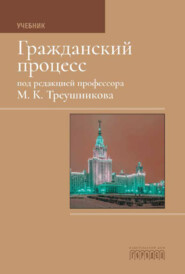По всем вопросам обращайтесь на: info@litportal.ru
(©) 2003-2024.
✖
International Short Stories: French
Настройки чтения
Размер шрифта
Высота строк
Поля
He had now come to a narrow passageway leading to the last of the inner posterns which pierced the walls. Here he found a sentinel on guard and the soldier sprang up to confront him. But a soldier to overcome was not an obstacle to stop the desperate flight of the baron. He struck the man heavily in the face with his sword, stunning him and sending him rolling in the dust.
Once through the postern there now remained only a single palisade or stockade – a great fence constructed of iron bars and iron trellis-work, which constituted the outermost barrier between the fleeing prisoner and liberty. Once over that iron palisade he had only to dash into the woods and disappear.
But it was ordained that Trenck was not to overcome this last obstacle, simple as it appeared. At a fatal moment, his foot was caught between two bars of the palisade and he was unable to free himself.
While he was engaged in superhuman but futile efforts to release his foot, the sentinel of the passage, who had picked himself up, ran through the postern toward the palisade, followed by another soldier from the garrison. Together they fell upon Trenck, overwhelming him with blows with the butts of their muskets and secured him.
Bruised and bleeding he was borne back to his cell.
Major Doo informed Trenck, after this abortive attempt to escape, that he had been condemned to one year's imprisonment only. That year was within three weeks of expiring when the infamous major, who was an Italian, goaded the unfortunate young man into open defiance of his sovereign's mandate. His pardon was at once annulled and his confinement now became most rigorous.
Another plot, headed by three officers and several soldiers of the guard, who were friendly to Trenck, was discovered at the last moment – in time for the conspirators themselves to escape to Bohemia, but under circumstances which prevented Baron de Trenck from accompanying them.
This also served to increase the hardships of the prisoner's lot, and he now found himself deprived of the former companionship of his friends and surrounded by strangers, the one familiar face remaining being that of Lieutenant Bach, a Danish officer, a braggart swordsman and ruffler, who had always been hostile to him.
But, despite his isolation, the energy and strength of Trenck's character were only augmented by his misfortunes, and he never ceased to plot for his deliverance. Weeks passed without any fruitful event occurring in the life of the prisoner, yet help was to come to him from a source from which he could never have expected it. But before that fortuitous result was destined to take place – in fact, as preliminary to its achievement – he was destined to be an actor in the most remarkable scene that ever has been recorded in the annals of prison life, and in one of the strangest duels of modern times.
One day Trenck had cast himself fully clothed upon his bed, in order to obtain a change of position in his cramped place of confinement. Lieutenant Bach was on duty as his guard.
The young baron had retained in prison the proud and haughty demeanor which had formerly brought upon him so much censure at court. Lieutenant Bach's countenance also bore the imprint of incarnate pride.
The two exchanged from time to time glances of insolence; for the rest, they remained silently smoking, side by side.
Trenck was the first to break the silence, for prisoners grasp every opportunity for conversation, and at any price.
"It appears to me your hand is wounded, lieutenant," Trenck said. "Have you found another opportunity to cross swords?"
"Lieutenant Schell, it seemed to me, looked somewhat obliquely at me," replied the Dane. "Therefore, I indulged him in a pass or two directed against his right arm."
"Such a delicate youth, and so mild-mannered! Are you not ashamed?"
"What could I do? There was no one else at hand."
"Nevertheless he seems to have wounded you?"
"Yes, accidentally though, without knowing what he did."
"The fact, then, of having been expelled from two regiments for your highhanded acts, and finally transferred to the garrison of the fortress of Glatz as punishment, has not cured you of your fire-eating propensities?"
"When a man has the reputation of being the best swordsman in Prussia he values that title somewhat more than your military rank, which any clumsy fool can obtain."
"You, the best swordsman!" exclaimed Trenck, concluding his remark with an ironical puff of smoke.
"I flatter myself that such is the case," retorted Bach, emitting in turn a great cloud of tobacco-smoke.
"If I were free," said Trenck, "I might, perhaps, prove to you in short order that such is not the case."
"Do you claim to be my master at that art?"
"I flatter myself that such is the case."
"That we shall soon see," cried Bach, flushing with rage.
"How can we? I am disarmed and a prisoner."
"Ah, yes, you make your claim out of sheer boastfulness, because you think we cannot put it to the test!"
"Truly, lieutenant, set me at liberty and I swear to you that on the other side of the frontier we will put our skill to the test as freely as you like!"
"Well, I am unwilling to wait for that. We will fight here, Baron Trenck."
"In this room?"
"After your assertion, I must either humble your arrogance or lose my reputation."
"I shall be glad to know how you propose to do so?"
"Ah, you talk of Bohemia because that country is far away. As for me, I prefer this one, because it affords an immediate opportunity to put the matter to the test."
"I should ask nothing better if it were not impossible."
"Impossible! You shall see if it be."
Bach sprang up. An old door, supported by a couple of benches, had been placed in the chamber for a table. He hammered at the worm-eaten wood and knocked off a strip which he split in half. One of these substitutes for rapiers he gave to Trenck, retaining the other himself, and both placed themselves on guard.
After the first few passes, Trenck sent his adversary's make-shift sword flying through space, and with his own he met the lieutenant full in the chest.
"Touché!" he cried.
"Heavens! It is true!" growled Bach. "But I'll have my revenge!"
He went out hastily. Trenck watched him in utter amazement and he was even more astounded when, an instant later, he saw Bach return with a couple of swords, which he drew out from beneath his uniform.
"Now," he said to Trenck, "it is for you to show what you can do with good steel!"
"You risk," returned the baron, smiling calmly, "you risk, over and above the danger of being wounded, losing that absolute superiority in matters of the sword of which you are so proud."
"Defend yourself, braggart!" shouted Bach. "Show your skill instead of talking about it."
He flung himself furiously upon Trenck. The latter, seeming only to trifle lightly with his weapon at first, parried his thrusts, and then pressed the attack in turn, wounding Bach severely in the arm.
The lieutenant's weapon clattered upon the floor. For an instant he paused, immovable, overcome by amazement; then an irresistible admiration – a supreme tenderness, invaded his soul. He flung himself, weeping, in Trenck's arms, exclaiming:
"You are my master!"
Then, drawing away from the prisoner, he contemplated him with the same enthusiasm, but more reflectively, and observed:
"Yes, baron, you far exceed me in the use of the sword; you are the greatest duelist of the day, and a man of your caliber must not remain longer in prison."

















